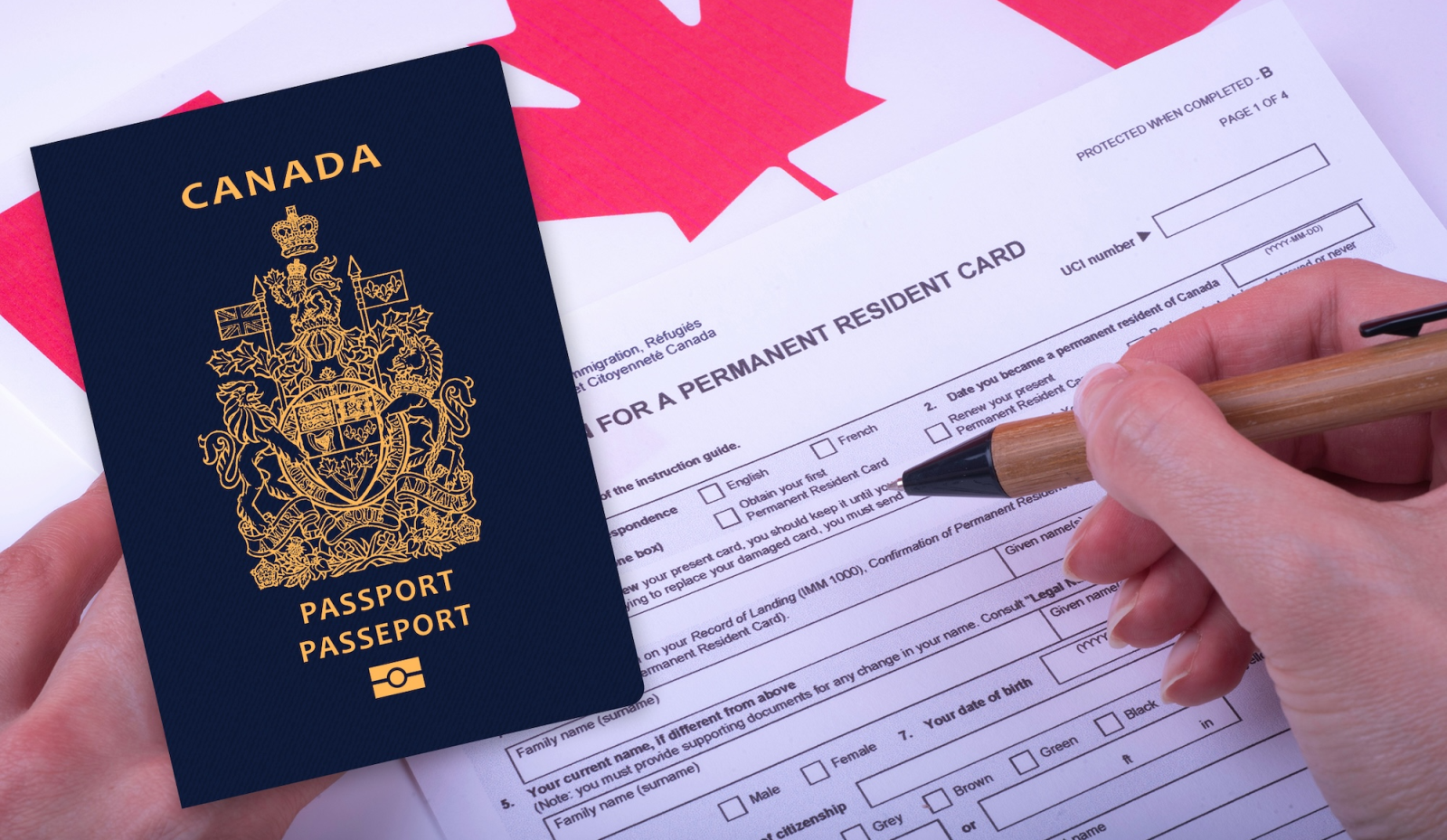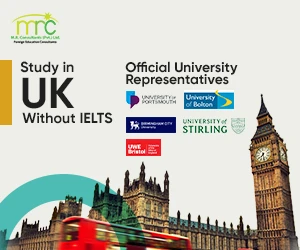
Permanent Residence in Canada for Pakistanis
A permanent resident in Canada is the foreign national authorized to permanently reside in Canada and work in the country on a permanent basis, similar to international students and foreign workers.
Permanent residents are not Canadian citizens, but they enjoy many of the rights and responsibilities of Canadian citizenship, such as access to health care, education, and social services.
There are many reasons why people want to get permanent residence in Canada like better work opportunities, better quality of life, social benefits etc.
-
PR: After getting permanent residence successfully in Canada, you may also require a permanent residence (PR) card. That PR card will indicate that you are a permanent resident of Canada while you are traveling.
There are rights and privileges for permanent residents who enjoy the same privileges as that of Canadian citizens. Such as below:
-
They are entitled to live in Canada without worrying about their place in the society.
-
The permanent residents have the entitlement to social services and free medical care in Canada.
-
The permanent resident in Canada does not require any study visa as they can stay in any institution in Canada to further their education.
-
Permanent residents are allowed free entry and exit from Canada, under specific residency conditions.
-
After being in Canada for a specified duration, permanent residents can make applications for Canadian citizenship
-
Permanent residents are protected by the Canadian law and are entitled to the same rights as the citizens of Canada.
-
Permanent residents are supposed to pay taxes on their income and assets to the Canadian government.
As a permanent resident of Canada, you are provided many rights and facilities, but there are some things permanent residents cannot do in Canada. Here are a few examples:
-
Permanent residents are not allowed to vote in federal elections.
-
Some jobs in Canada require a high-level security clearance like police and investigation departments
-
Permanent residents are not eligible to contest political offices in Canada.
-
Permanent residents must satisfy certain residency requirements to maintain their status. If you are outside of Canada for a long time, you may lose your permanent resident status.
-
Permanent residents can be deported for grave offenses like criminal offenses and immigration fraud.
Categories for Canadian Permanent Residents
You may belong to any of the several categories of permanent residence and, in some of those categories, you require work experience in Canada. The principal categories of permanent residence under which you are eligible to apply are:
-
Class requires a minimum 1 year of work experience either from full time or part time job.
-
The Federal Skilled Worker Program is best for you if you have a continuous work experience of at least 1 year in one of the NOC TEER categories in the engineering and medicine field.
-
The Provincial Nominee Program is best for you if you want to live in a particular territory or province of Canada.
Requirements For Permanent Residency In Canada
Here are some other common requirements for permanent residence in Canada:
-
You must demonstrate a minimum level of proficiency in one of Canada's official languages, being either English or French.
-
You must have a minimum level of education, as stipulated for your chosen immigration program. Generally, post-secondary or equivalent is required.
-
You must have work experience in a skilled occupation, usually characterized as an activity that depends on the completion of post-secondary education or training.

No statutory age limit exists for permanent residence
-
You will undergo a medical and background check to ensure that you are not a threat to Canadian security or public health.
-
You have to demonstrate that you have enough funds to support yourself and your family members once you arrive in Canada.
-
Application Process for Canadian Permanent Residence
-
First, you must register by creating an IRCC account.
-
Now, apply for permanent residence through Express Entry.
-
Make sure to upload all the requested documents such as i.e. passport, medical certificate, English proficiency test scores, proof of funds and your photos etc.
-
Answer all the questions and fill out all the mandatory fields to successfully submit your application.
-
You can save your application in the middle and continue it later if you currently don’t have any documents.
-
Your Express Entry application will only be available in the portal for 60 days. That's why you should complete your application as soon as possible or else you have to begin from the beginning.
Application Fees For Canadian Permanent Residency
Permanent residence fee depends on the kind of permanent residence you are seeking to apply for. The Permanent residence applicants have to pay fees for their applications of Permanent residence. The work experience based application with the inclusion of express entry fees schedule is shown below:
| Definition | Fee |
|---|---|
| Application processing fee with right of permanent residence | 1,365 $CAN |
| Application processing fee without right of permanent residence | 850 $CAN |
| Permanent residence (PR) card | 50 $CAN |
Canadian Permanent Residency Validity
The status of permanent residence in Canada is usually valid until eternity, as long as a person meets all the requirements to be in residence according to the Canadian government.
A permanent resident must have been present in Canada for at least 730 days or two years in any given five-year period to keep his or her status.
They are deemed inadmissible and may lose their status if they have committed a serious crime or if they have misrepresented themselves in their application for permanent residence or citizenship.
Canadian Citizenship
Canadian citizenship is the legal status of being a citizen of Canada. And people who gain Canadian citizenship successfully enjoy a range of rights and privileges, including the right to vote in federal and provincial elections, the ability to travel with a Canadian passport, access to government services, and the ability to work and study in Canada without the need for a visa or work permit.
If you are a student in Canada, then you are neither a permanent resident nor a citizen of Canada currently. Once your studies are over, you have to start the process towards becoming a citizen. First, you need to apply for Canadian permanent resident status. It simply means you have to:
Apply for Canadian permanent resident status
-
Remain a citizen of your home country
-
When your immigration process is complete, you can become a Canadian citizen.
Eligible To Apply For Canadian Citizenship
To apply for citizenship, all applicants must meet the following criteria:
-
Be a permanent resident of Canada
-
Lived in Canada for at least 3 out of the last 5 years (1,095 days) doesn't have to be continuous
-
Paying Taxes
-
Pass the Canadian citizenship Test
-
Language proficiency scores in English or French
Application Fee For Canadian Citizenship
Applicants can apply for Canadian citizenship either by submitting an online application or by submitting a paper application. The processing fee for the Adult Canadian Citizenship application is CAD $630. This includes the processing fee CAD $530 and CAD $100 right of citizenship fee.
Application Process For Canadian Citizenship
-
Applicants need to create their account on the official website of IRCC by answering some questions.
-
The responses to those questions will reveal whether you are qualified or not to apply.
-
You'll receive an application package once you create the account
-
An application package contains the instruction manual and all the needed forms. You can use a checklist of documents and an instruction guide to avoid missing out on something.
-
Submit all requested documents and answer all questions that were asked of you.
-
Pay your fee online, through the online banking system or by using your master or visa cards
-
Sign your citizenship application form.
-
Insert the date of signing on the form do not use date in past or future
-
Submit your application online or mail all your application packages, including your completed form to the IRCC case processing center as soon as possible.
-
IRCC will issue an acknowledgement of receipt or mail the letter/email to applicants after receiving their application. Because of the thorough checking process, this may take a few weeks.
-
Applicants who receive the acknowledgement of receipt or letter and/ or email are allowed to check their status online.
Canadian Citizenship Application Processing Time
The processing time for your application begins from the date when a complete application reaches IRCC, but the clock stops once a decision has been made. The clock begins from the date your application reaches the IRCC office.
-
Online and in-hand applications: The clock starts ticking the very moment you submit your application. The standard processing time of application for Canadian citizenship is 22 months but due to the labor disruption in the Government of Canada.
After Submitting Canadian Citizenship Application
While your application for Canadian citizenship is under process, you can begin preparing for your Canadian citizenship test and interview. IRCC conducts the Canadian citizenship test and interview to assess your knowledge and understanding of Canadian history, laws, economy etc. IRCC will first conduct the test and then the interview.
Canadian Citizenship Test
After the lapse of weeks following the receipt of the acknowledgment of receipt or AOR, applicants are invited for the test of the Canadian citizenship test. You will get the test notification from the email of IRCC with date, time, and location approximately one to two weeks in advance before conducting the test.
Adult applicants between the age group 18-54 years need to necessarily take the test. Candidates of 55 years or above are exempted to take the test but they should appear for the interview. You can prepare for your Canadian citizenship test from the following Discover Canada.

The Rights and Responsibilities of Citizenship guide. The test will consist of 20 Mcqs and true or false questions out of which candidates have to get the 15 questions right under 30 minutes to pass the test.
The IRCC will ask you 20 questions about the following Canadians and Canada's:
-
History
-
Economy
-
Geography
-
Laws
-
Government
-
Permanent residence PR Card (if have any)
-
2 personal identification proofs; one can be your driver license or health card with your picture and sign and second can be your foreign ID documents must be issued by the government.
-
Your printed test notice (notice to appear).
-
Passport and all travel documents that you mentioned in your application.
-
A language proficiency test score certificate (English or French)
-
IRCC might request additional documents in your notice to appear letter
What If You Flunk Your Citizenship Exam
IRCC will arrange a retake of the citizenship exam when you flunk the initial one but pass all the citizenship test qualification. The retake usually takes place after 4 to 8 weeks from the first examination. When you fail again in the retake, IRCC will send a notice to appear at a hearing with a citizenship official.
This is also the session that would assess one or more of the citizenship requirements, that may include, among others, knowledge about Canada, language.
Your application will be rejected if you fail the test three times. You can re-apply from the start to try again. If you miss your first test you can contact IRCC with a valid reason for missing the test and get a new test date.
Canadian Citizenship Interview
-
You will have an interview with a citizenship official after the test. In that interview the citizenship official will:
-
Give you the result of you citizenship test
-
Check your English language proficiency if you are between the age of 18 and 54
-
Will verify your citizenship application and your provided documents
-
Ask you any questions IRCC may have about your application
-
Ensure that you meet all citizenship requirements.
-
All candidates (adult and minor) must appear for the citizenship interview except in some cases.
-
If you pass and meet the other requirements for Canadian citizenship, IRCC will give you the date for the citizenship oath ceremony at the same day of an interview or send you via email or letter with a date and time of your ceremony after a few days.
Citizenship Oath Ceremony
Your final step towards becoming a Canadian citizen will be to take the oath of citizenship at a citizenship ceremony.
Citizenship ceremonies take place throughout the year. Some of the applicants are called by IRCC for the in person's ceremony. Normally the date for the ceremony is held in between 4- 6 months after one appears before the citizenship test. An electronic notice regarding the date to the ceremony gets sent 1 to 2 weeks to your mail for oath taking candidates.
In case of ceremony one could write to IRCC with an email or by written by valid reason not attending.
What to Bring To Your Oath Ceremony
-
A photo of your Invitation Letter Citizenship Ceremony
-
Permanent Residence Card although invalid or any document issued that proves you are a permanent resident of Canada.
-
2 pieces of identification from which at least 1 is either;
-
Your driver license or your health card showing your photograph and signature
-
Government issued foreign ID documents. Any foreign ID documents that are translated must be accompanied by an affidavit if your documents are not in English or French.
-
Children do not need to show identification
-
Copy of passport and all travel documents current and expired that you reported on your application.
-
A Holy Book of your choice if you wish to take the Oath of Citizenship with one. This is entirely optional.
What happens at a Citizenship Oath Ceremony
The Oath of Citizenship will be administered by a citizenship judge or official. Many people will take the oath at the same time. The official conducting the ceremony will take the oath in both French and English. After the official you will all repeat the words of the oath together. You must, in at least one official language, English or French, repeat the oath. As a summary, during the oath ceremony you will:
-
Take the Oath of Citizenship
-
Be given a citizenship certificate
-
Sign the Oath or Affirmation of Citizenship form
-
And sing the national anthem of Canada; "O Canada!"



.gif)


























